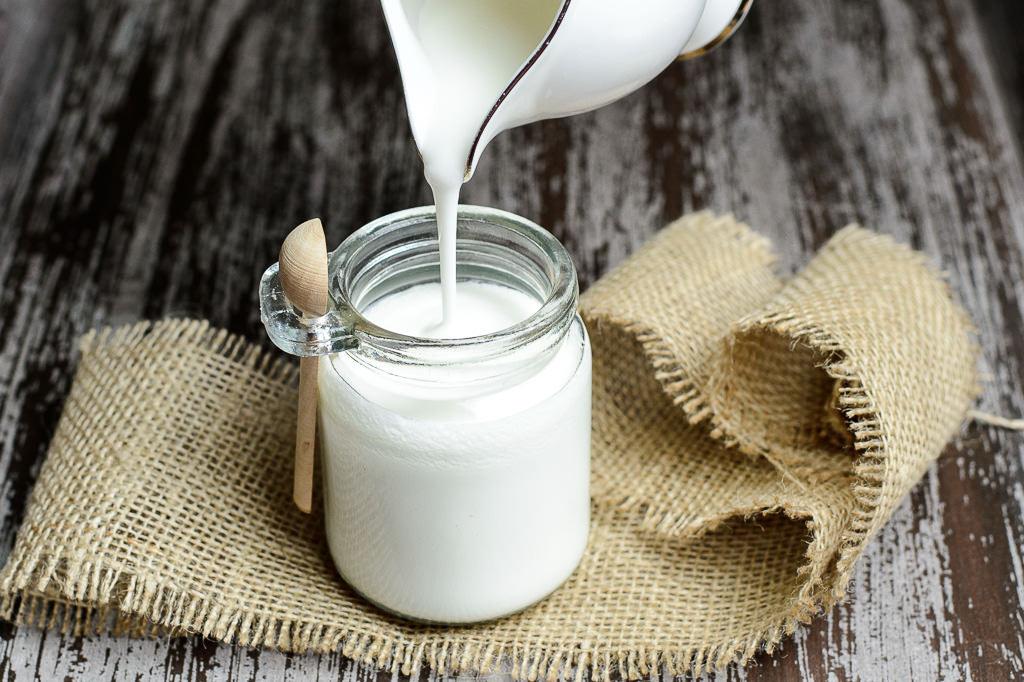Fermented brew offers delicious way to ward off disease-causing bacteria and restore microbiome
Thanks to the fermentation craze, fizzy, probiotic-forward drinks such as kefir and kombucha are the elixirs of choice in health food circles.

Originating in the Caucasus Mountains and derived from the Turkish word keyif, meaning “feeling good,” kefir is a nutrient-dense, milk-based drink packed with protein, B vitamins, potassium and calcium. But it’s kefir’s high level of probiotics, a group of living cultures that help balance intestinal flora and improve gut health (microbiome), that have health-conscious consumers reaching for the sour, creamy concoction. Kefir is a wonder drink that has been popular in certain parts of the world for centuries, but if you’re just learning about it now, you’re not alone. Kefir (pronounced keh-feer) has long lived in the shadow of kombucha, its trendy, probiotic “cousin.”
Kefir is an ancient beverage with modern benefits, and its rising popularity as a mainstream, health-enhancing drink is backed by countless studies. The reputed health benefits of the fermented brew include lowering cholesterol, reducing inflammation, and exerting antioxidant properties. Moreover, a new study published in the journal BMC Microbiome reports that researchers at Ben-Gurion University of the Negev (BGU) in Be’er Sheva, Israel, have discovered that a type of yeast in kefir called Kluyveromyces marxianus secretes a molecule that disrupts bacterial communication. It’s a breakthrough that could inspire the development of new ways to tackle antibiotic-resistant bacteria.
Kefir provides science-backed health benefits, improved gut health is only one of them
In 2018, the popularity of fermented foods increased by 149%, and whether it’s kefir, kombucha, miso, yogurt or sauerkraut, consumers still can’t get enough of cultured foods. And it’s easy to see why.
The enteric nervous system is now commonly referred to as our “abdominal brain,” and the state of our gut is one of the most important aspects for overall good health and wellbeing. Not only does kefir have three times the amount of probiotics than yogurt, but according to a review in Frontiers in Microbiology, the tangy, sweet/sour drink also provides the following health benefits:
• improves cholesterol profile
• supports a healthier immune system
• possesses antibacterial and antifungal properties
• has antitumor activity against cancer cells
• decreases inflammation
• promotes a healthier digestive system
Here are the best ways to enjoy this versatile fizzy drink
The most popular way to consume kefir is as a cold beverage. According to Ayurvedic medicine kefir is very useful in helping and improving the digestion process. For this, it is recommended to mix kefir with grinded digestive spices like coriandrum, fennel seeds, turmeric, cumin etc. – any that you enjoy and feel well using them – and also with salt (any kind of natural salt good for you – raw mine salt, pink himalayan salt, black salt etc.) and a little bit of cold pressed oil. After mixing vigorously, add pure warm water, same quantity as kefir, and mix again. This is a good digestive beverage to consume during meal.
Due to its fizzy effervescence, kefir is nicknamed “the champagne of milk.” While an adventurous home fermenter can easily make kefir using the fermentation of yeast and bacteria (kefir grains), numerous kefir brands (Nomadic, Maple Hill Organic, and Green Valley Creamery, to name a few) are available in health food stores and artisan markets. In fact, kefir is such a hot commodity that the global kefir market is projected to reach 1.84 billion by 2027 (so if you don’t see it at your mainstream grocery store now, you will soon.)
In addition to drinking kefir as a beverage, it can also be used in place of milk in your cereal meal, added to smoothies or granola, or cooked with. It’s commonly used in baked goods (bread, pancakes), soups and salad dressings, and marinades.
yogaesoteric
October 9, 2021
Also available in:
 Français
Français
